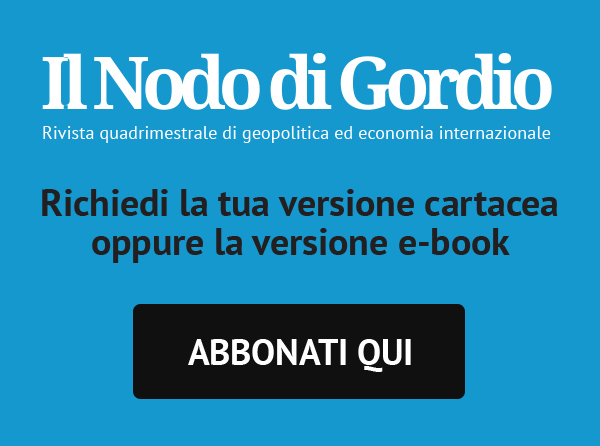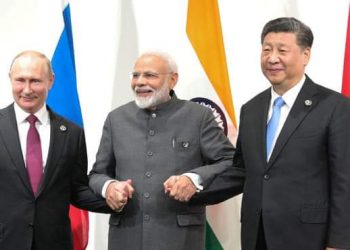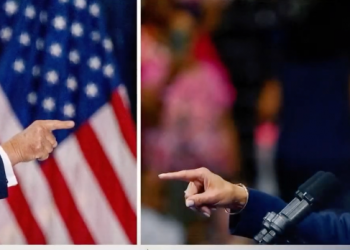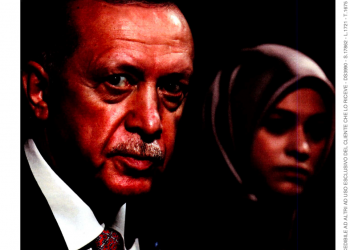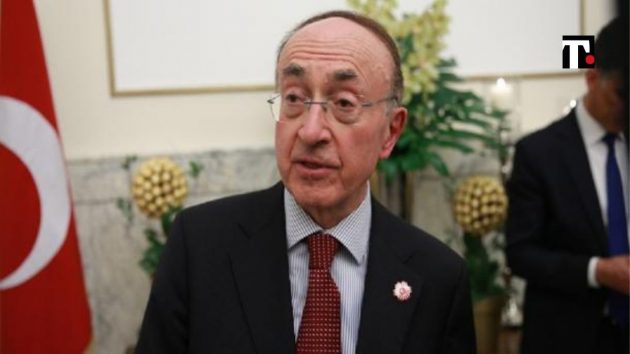
Testo integrale dell’intervento dell’Ambasciatore Carlo Marsili a Madrid per il vertice NATO.
COMMON CHALLENGES FOR TURKIYE AND NATO
( Madrid 28 June 2022 )
All the NATO Leaders in London in December 2019 asked Secretary General Stoltemberg to undertake a Forward-Looking Reflection Process to assess ways to strengthen the political dimension of the Alliance.
To this end , in April 2020 , Stoltemberg appointed a Reflection Group to provide recommendations in three areas :
- Reinforcing Allied unity , solidarity and cohesion
- Increasing political consultations and coordination
- Strengthening NATO’s political role and relevant instruments to address current and future threats and challenges to Alliance’s security emanating from all strategic directions.
The first part of the Reflection Group outlines the VISION FOR NATO IN 2030. The second part assesses the main trends that will shape NATO’s environment between now and 2030. The third part provides a more detailed discussion of the recommendations according to each of the three objectives given to the Group by the Secretary General.
As we know, the Washington Treaty was signed in April 1949, seventy three years ago. In the more than thirty years since the collapse of Soviet Union, NATO ended two wars and ethnic cleansing in the Western Balkans, stepped up to the threat of terrorism, engaged abroad, not always successfully as in Afghanistan, and is now responding to the threat posed by Russia with the war in Ukraine.
Today NATO stands as history’s most successful alliance, encompassing nearly a billion people and half of global GDP across a space which stretches from the Pacific coast of North America to the Black Sea. Yet, future uncertainties demand that NATO continues to adapt. The world of the next eight years will be very different from the present one: it will be a world of competing Great Powers, persistent terrorism, possible new pandemics and natural disasters, climate change, emerging and disruptive technologies, and cyberspace which represents the new frontier of the future.
Therefore, by the end of our decade, NATO should uphold its role of peace and stability; remain the strategic center of gravity for collective defence; play a larger part in international order, guarantee energy security and so on .
In addition to threat from the East there are risks from the South as well, even if sometimes forgotten. And in order to prevent them, NATO has to work in Africa – something that Turkiye started successfully more than ten years ago – and with African Union; League of Arab States; Gulf Cooperation Council.
But South means also the Mediterranean. In the Mediterranean NATO should face not only the Russian presence especially after its consolidation in Syria, but also the Syrian issue as a whole, the Libyan issue and the Eastern Mediterranean and Aegean problems.
In Syria, NATO should understand that Turkiye needs to create a security zone along all the border in order to protect itself from YPG, which is the other side of the medal of PKK, even if not everybody seems to understand that. At the same time, Iran is objecting to a possible Turkish intervention, but yesterday’s visit to Ankara of the Iranian Minister of Foreign Affairs emphasized the importance of a bilateral cooperation in the fight against terrorism.
In Libya, the horizon is not clear at all, but at least Rome and Ankara support the same Government and there is space for bilateral cooperation in view of a future Berlin conference if and when possible.
In the Eastern Mediterranean, successful application of Turkish hard power thanks to the agreement with the Tripoli government in November 2019 to revise maritime boundaries has indirectly created a new scenario: United States-Greece strategic dialogue, France and Greece strategic partnership, a budding Greek – Cypriot- Israeli- Egyptian alliance. At the same time, Greece has no intention to demilitarise the Aegean islands hugging Turkiye’s western coast, in spite of the article 2 of the Paris Treaty of 10 February 1947 which forced Italy to give them to Greece.
But the main problem is Cyprus . After so many years of inconclusive negotiations for the reunification following the April 2004 referendum, we should realize that any negotiations for the dispute need a two-States solution and should be initiated between two equally sovereign States. There is no other reasonable solution. But European diplomacy is still reluctant to act in this direction.
As far as the cooperation between NATO and United Nations is concerned, we have been witnessed for many years the United Nations substantial impotence in front of the many conflicts around the world – including the present Russian-Ukrainian one – with one exception, to repel the North Korean invasion of South Korea, where by the way Tùrkiye played a very important role. As a matter of fact, United Nations Organization has failed to prevent and to stop the disasters in the world , and therefore we need to reform it. In this framework, Rome and Ankara share the same opinion, underlined by President Erdogan: THE WORLD IS BIGGER THAN FIVE .
NATO has in these days an important job to do in supporting Ukraine. But one NATO country has proposed itself as a mediator – Turkiye – and that is extremely important as well, because we should convince both Moscow and Kiev to sit down at a table to negotiate a peace agreement. Turkiye is in the position of doing that, even if the task is very difficult, and nobody can complain for its attitude sometimes wrongly labelled as ambiguous, because a mediator should be considered impartial by definition, so Ankara has correctly condemned the Russian aggression, supported Ukraine with drones and also hosting many refugees applied the Montreux Convention but at the same time has correctly avoided of imposing sanctions to Russia. Because the first rule of diplomacy is that in a negotiation nobody can lose the face, everybody should give something and nobody should leave the table unsatisfied.
As a part of the future vision of NATO in the light of global developments, enlargement deserves a couple of words.
There is no deadline to resolve the issue of Sweden and Finland by today’s NATO’s Summit in Madrid, which many have seen as a moment for the alliance to formally welcome its new applicants. Turkiye’s concerns seem less directed at Finland than Sweden, even if Finland has stressed that would not abandon Stockholm, whose Government has twice survived only thanks to a deal with a Swedish Kurdish member of Parliament that includes support for PKK terrorists.
Now, Secretary General Stoltemberg has defined Turkish concerns as legitimate but at the same time many NATO allies and public opinions do not seem to understand them and make a lot of confusion between Kurds and PKK.
As a matter of fact, if NATO target is, as it is, to preserve the territorial integrity of the member States, the question is: how can Sweden enter the Organization if it hosts – as it hosts – several PKK leaders, whose target is to divide the Turkish state into two?
The Turkish President is scheduled to meet with the leaders of Sweden and Finland this afyernoon and there is a possibility of a reasonable deal but the two Scandinavian leaders should understand that Turkish demands, such as asking to prevent fundraising or recruitment for the PKK, are justified.
As NATO finalizes its new Strategic Concept, a return to arms control will have to take place at some stage. At the moment, there are no signs from Europe’s two nuclear powers – France and Britain – or for that matter the United States, that this is on their radar screens. Related to this challenge facing NATO and European Union is, as I said, enlargement. The decision by Georgia, Moldova and Ukraine to apply to join the EU is not convincing all European partners, even if for Ukraine and Moldova there is a green light. There is little appetite inside EU for enlargement, the case of Turkiye is simply astonishing. This is true also for the countries from the Western Balkans, which is after all the EU’s backyard. By contrast, NATO has already admitted Albania, Montenegro and North Macedonia. This increases the strategic influence of the United States in this part of Europe. It is a different matter in Eastern Europe where many NATO partners share the position not to admit Ukraine, Georgia and Moldova.
What the current crisis is proving, is the necessity of understanding that Turkiye remains an essential part of NATO and stability architecture. We should be very clear on this point:
It is not true that Ankara is isolated as often the European press stresses. There are turbulences around, for sure. But in the last weeks Turkiye has hosted the Israeli President, the Azeri one, the Armenian Minister of Foreign Affairs, the Greek Prime Minister, the German Chancellor, the Dutch Prime Minister, and the list can go on and on. On the next July 5yh it will take place the Intergovernmental Summit between Italy and Turkiye, which I had the honour of promoting for the first time as Italian ambassador in 2009 in Izmir.
The Turkish foreign policy might be peculiar because its geopolitical position is peculiar. Every country is prisoner of geography. But as a matter of fact, Turkiye is culturally muslim, member of NATO, official candidate to EU, Middle East regional power, international actor, member of G 20, of European Council, first partner of many African countries and enjoys reasonable good relations with Russia and China. It is a great diplomatic history of success.
NATO Summit which starts this evening will focus on threat from Russia but will keep an eye on Asia, with the message that security in Europe and Asia cannot be separated . Therefore like-minded countries as Japan, South Korea, Australia, New Zealand, will be part of the scenario, whose most critical issues are the strategic directions that will shape the future of international security in the Middle East, and North Africa region and the Indo-Pacific, and how to effectively address emerging global challenges including food security. All that together with the question mark of China, the Taiwan issue, the ASEAN factor and an India which remains close to Russia . The “Great Game“ in Asia is in full swing. But an America so polarised at home, does have the will to sustain its dominance abroad? This is just one of the many questions we should pose to ourselves in this period of dangerous uncertainty.
CARLO MARSILI



